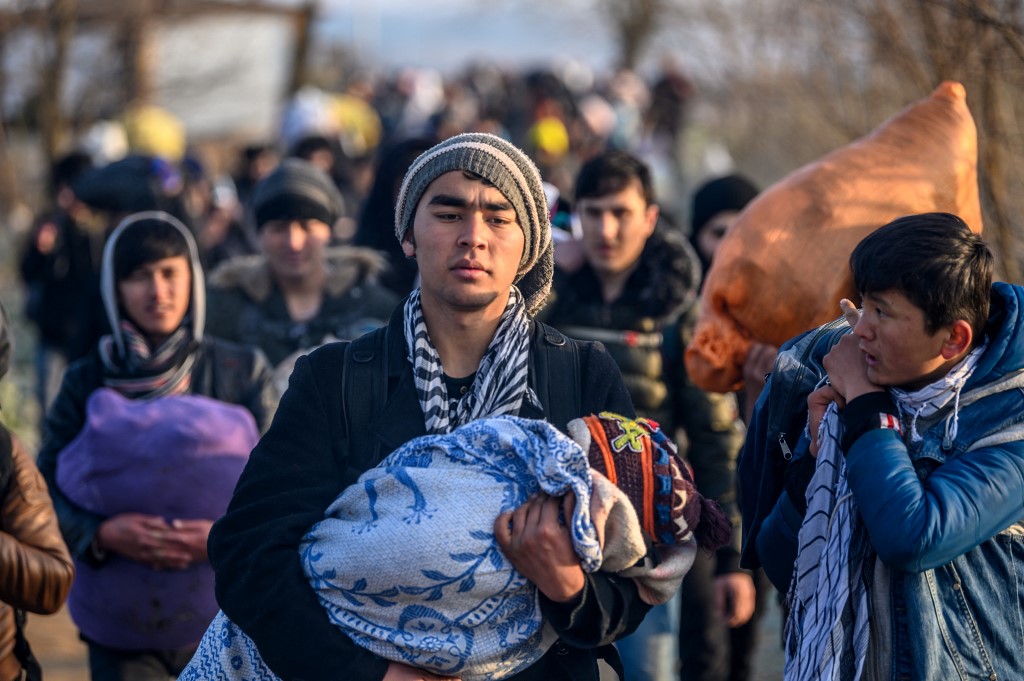Turkey’s main opposition leader and presidential candidate Kemal Kılıçdaroğlu has said if he is elected, he will prioritize Turkey’s interests regarding the future of a migrant deal signed with the EU in 2016 that is held by many as responsible for the large number of refugees in the country.
“I’ve been very clear about this issue from the beginning. Turkey first,” Kılıçdaroğlu, leader of the Republican People’s Party (CHP) and the joint presidential candidate of an opposition bloc of six parties – known as the Nation Alliance – said in a tweet, responding to a question posed in a Euronews story.
I've been very clear about this issue from the beginning. 🇹🇷 first. https://t.co/r8erQZjQDI
— Kemal Kılıçdaroğlu (@kilicdarogluk) March 30, 2023
The news report, titled “What will happen to Turkey’s EU migrant deal if the opposition wins the election?” underlined that anti-migrant sentiment has increased in Turkey in recent years and that the opposition Nation Alliance is hoping to gain votes by pledging to send 2 million Syrians back to their homeland within two years.
According to the migrant deal signed in March 2016, Turkey would keep asylum seekers from reaching the EU or, if they do, the EU would be able send them back to Turkey. In exchange, Turkey would receive 6 billion euros to improve the humanitarian situation faced by refugees in the country.
Turkey hosts nearly 3.5 million Syrian refugees who have fled civil war and were registered under temporary protection as of March 2023, according to official figures.
In January 2023 Kılıçdaroğlu said if his party comes to power after the election, they will send Syrian refugees home in two years’ time at the latest. It wasn’t the first time that Kılıçdaroğlu, notorious for his anti-refugee rhetoric, spoke about sending Syrian refugees home from Turkey.
The CHP leader also claimed that the refugees would be returning to Syria “of their own free will.”
Refugees in Turkey are frequently targeted by Turkish politicians, who hold them responsible for the social and economic problems in the country.
Attitudes about refugees fleeing the long conflict in Syria have gradually hardened in Turkey, where they used to be welcomed with open arms, sympathy and compassion, as the number of newcomers has swelled over the past decade.
In its election campaign, the opposition bloc outlined a four-step solution to the migrant crisis in Turkey, with the first step being making peace with the country’s neighbors and “sitting down” with the Syrian government.
Despite calls from Turkey’s opposition parties and the Turkish government’s policies, the United Nations Commission of Inquiry on Syria said in September that Syria was not safe for refugees to return to.
The commission said it continued to document serious violations of human rights and that arbitrary detention and torture remained systematic in government-controlled areas.
Turkish Defense Minister Hulusi Akar said last week that 60,000 Syrian refugees returned home in the aftermath of massive earthquakes in southeastern Turkey last month.
A 7.8-magnitude earthquake that struck near the Turkish city of Gaziantep – home to around 2 million people and on the border with Syria – as people were sleeping on February 6 was followed by dozens of aftershocks, including a 7.5-magnitude temblor that jolted the region in the middle of search and rescue efforts the same day.
Since the EU-Turkey migrant deal, an agreement criticized by rights groups that foresaw the payment of 6 billion euros to Turkey to keep asylum seekers from crossing into Bulgaria and Greece, the number of migrants and refugees arriving in Greece has fallen sharply. In 2015, 856,000 crossed the Aegean Sea, dropping to 173,000 the next year and to 30,000 in 2017.
In December 2020 the EU said it had allocated to Turkey the full 6 billion euros ($7.3 billion) pledged in 2016.
The EU funds were earmarked for specific social projects inside Turkey for helping refugees and were not paid directly to the Turkish government.
